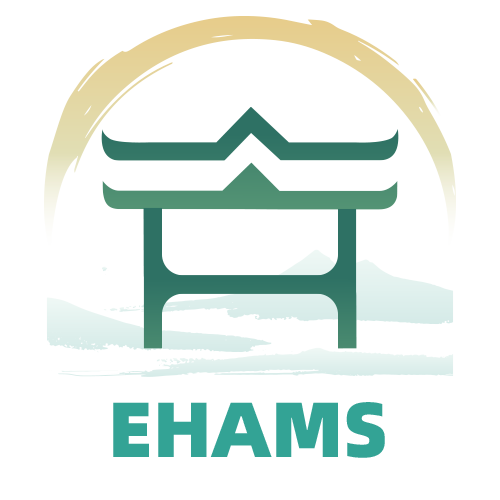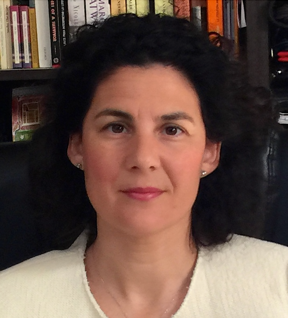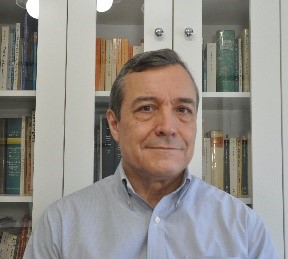
2025 2nd International Conference on Education, Humanities, Arts and Management Sciences (EHAMS 2025)
Keynote Speakers
| Prof. Alberto LázaroDepartment of Modern Philology, University of Alcalá, Spain Introduction: Alberto Lázaro is Professor of English Literature at the University of Alcalá, Spain, since 1987. His extensive research centres around British and Irish fiction, with a specific emphasis on censorship, historical fiction and translation. In recent years, he published H. G. Wells en España (2004) and Censorship across Borders (2011, coedited with Catherine O’Leary). His works also include essays on Virginia Woolf, James Joyce and H. G. Wells featured in three volumes of “The Reception of British Authors in Europe” series, edited by Elinor Shaffer and published in London by Continuum. His recent research endeavours focus on texts related the Spanish Civil War by British and Irish authors, leading to the critical editions and Spanish translations of Claude Cockburn’s Reporter in Spain (2012) and Irish author Peadar O’Donnell’s Salud!: An Irishman in Spain (2019). |
Prof. Carmen Valero GarcésTranslation and Interpreting | University of Alcala (Spain) Introduction: Dr. Carmen Valero Garcés, Full Professor of Translation and Interpreting at the University of Alcalá, Madrid (Spain). MA in International Relationship and Intercultural Mediation by the Universidad Autonoma de Madrid. Coordinator of the Research GroupFITISPos (Research and Training in Public Service Interpreting and Translation),and the EU DGT Working Group PSIT across EU and Languages of Lesser Diffusion.Founder and co-editor of theFITISPos IJand co-founder of AFIPTISP.Her main research areas are intercultural communication and translation & interpreting, with emphasis on Public Service Interpreting and Translation. Author and editor of several books and numerous articles in impact international journals. Her scholarly interest also extends to the study of AI and its impact on PSIT and languages of lesser diffusion. Speech Title: RESEARCH IN TRANSLATION STUDIES FROM AI AND MT PERSPECTIVE (SPANISH - CHINESE) Abstract: The landscape of translation studies has been reshaped profoundly by the continued development of Machine Translation (MT) (Kenny, 2022b), which is frequently associated with artificial intelligence (AI) contemporarily (Kenny, 2022a).While studies with specific topics related to MT keep emerging, it would be interesting and beneficial to have a panoramic view about current investigations in translation studies from machine translation perspective, with language pairs perhaps not that common, such as Spanish-Chinese. In this paper, with VOSviewer, the author intends to provide a bibliometric analysis of the published articles available online related to translation studies from the angle of machine translation with language combination Spanish-Chinese. Moreover, a quantitative and qualitative analysis will be conducted on the same group of papers subject to bibliometric analysis, to have an overall understanding about the research topics, methods applied, texts used, and the findings achieved. |
|
 | Assoc.Prof. Soraya Garcia-EstebanFaculty of Education | University of Alcala (Spain) Introduction: Assoc. Prof. Dr. Soraya Garcia-Esteban holds a Ph.D. in Modern Languages, Literature and Translation from Universidad de Alcalá (UAH) and a M.A. from University of the West of England. After years of experience in several European higher education institutions, she is the current coordinator of the UAH-MFP Master of Education (English) and full time lecturer in Teacher Training, ESP, CLIL and ELT methodology in Alcala University. Her interest and participation in international innovation and research projects related to educational virtual exchanges for competence development in EMI contexts integrating technology, pedagogy and content knowledge (TPACK), has resulted in several academic communications and publications. Dr. Garcia-Esteban co-lead Eramus+ project ErasmusX “Online courses for mobile students” and participates in Erasmus+ project "e-Close- A model for Interactive (A)Synchronous Learning in Online STEM Education". Speech Title: Best Practices for Teaching Key Competencies through Medieval Culture Abstract: This communication details the final phase of an innovative educational project (INEDCOM-HITAR carried out at the University of Alcalá), aimed at developing a comprehensive model of best practices for fostering essential competencies in teacher training using medieval literature. The project centers on Juan Ruiz’s Libro de Buen Amor (The Book of Good Love) as a key case study and incorporates methodologies such as service learning, gamification, and alignment with the United Nations Sustainable Development Goals (SDGs). This framework promotes experiential, interdisciplinary and place-based learning approaches designed to enhance linguistic communication, cultural awareness and expression, citizenship, and digital competencies. Additionally, it seeks to support heritage preservation and advance the internationalization of education. By integrating these elements, the project offers a holistic strategy to prepare future educators with diverse skills necessary for modern teaching contexts. |

